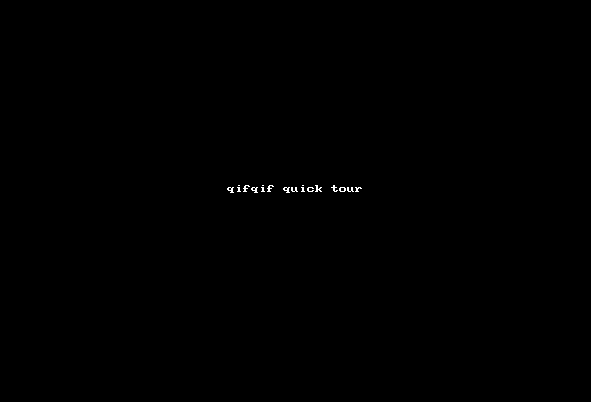

qifqif
/kĭf kĭf/ :
- adj. inv. arabic slang (كيف) for "it's all the same".
- n. CLI tool for categorizing qif files. It can make all the difference.
Description
CLI tool to enrich your QIF files transactions with category information, hence cutting down import time from minutes to mere seconds.
QIF is a format widely used by personal money management software such as GnuCash to import information. Yet, the import process is particularly tedious as it require to manually pair the transactions contained in the file with categories (or "accounts" for double-entry bookkeeping systems).
qifqif augment your qif files by adding a category line for each transaction, that additional information can then be used by accounting software to perform automatic QIF imports. It picks categories by searching for predefined keywords in transactions descriptions lines and by repeating choices you previously made regarding similar transactions.
Features
- Quickstart: create categories by importing your existing accounts with qifacc
-
Blazing fast edits: thanks to well-thought-out defaults and
<TAB>completion - Auditing mode: review your transactions one by one
- Batch mode (no interactive): for easy integration with scripts
-
Easy-going workflow: dreading the behemoth task of importing
years of accounting from a single file? Don't be. Go at your own pace
and press
<Ctrl+C>to exit anytime. On next run, editing will resume right where you left it.
Usage
usage: qifqif.py [-h] [-a | -b] [-c CONFIG] [-d] [-f] [-o DEST] [-v] QIF_FILE
Enrich your .QIF files with tags. See https://github.com/Kraymer/qifqif for
more infos.
positional arguments:
QIF_FILE .QIF file to process
optional arguments:
-h, --help show this help message and exit
-a, --audit-mode pause after each transaction
-b, --batch-mode skip transactions that require user input
-c CONFIG, --config CONFIG
configuration filename in json format. DEFAULT:
~/.qifqif.json
-d, --dry-run just print instead of writing file
-f, --force discard transactions categories if not present in
configuration file. Repeat the flag (-ff) to force
editing of all transactions.
-o DEST, --output DEST
output filename. DEFAULT: edit input file in-place
-v, --version display version information and exit
More infos on the documentation website.
Installation
qiqif is written for Python 2.7+ and Python 3.5+.
Install with pip via
pip install qifqif command.
Changelog
Available on Github Releases page.
Feedbacks
Please submit bugs and features requests on the Issue tracker.
